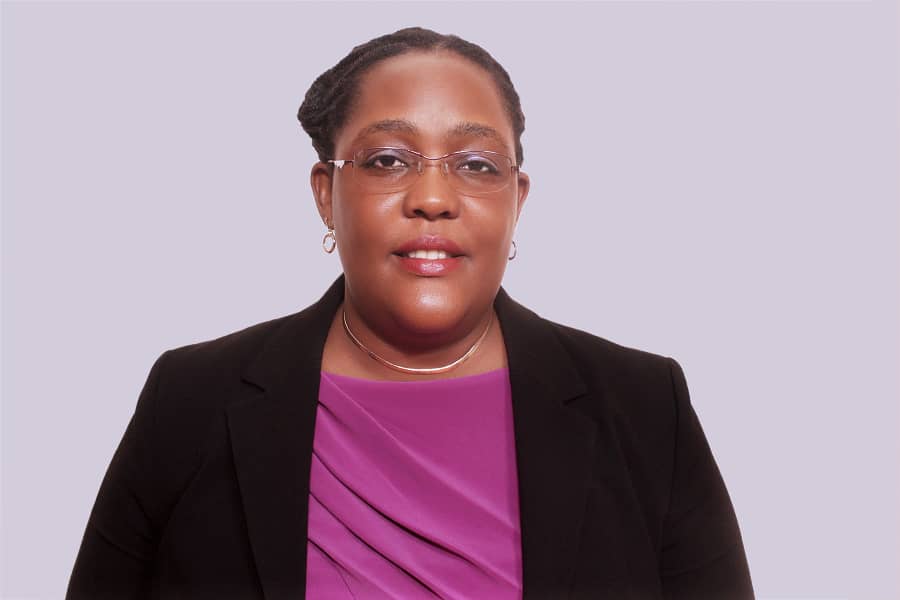In Trade Law & Policy Services
EK Consulting Group is a private sector trade technical consultancy that offers expertise in trade law and policy in the East African region through the provision of research and training services. We have gained an undisputable repute in offering high quality services. The following are our key objectives and activities:
1. To provide a private sector trade technical consultancy centre.
2. To avail highly skilled technical personnel that interlinks national, regional and multilateral expertise in trade and investment law and policy.
3. To avail trade expertise that provides research and consultancy services engaging in trainings, workshops, and conferences on trade law and policy.
4.To publish, print, write, comment and avail information on trade matters in the form of opinion papers, briefs, pamphlets, articles, flyers, radio programs, television programs, news papers, films, and any other relevant mode of transmission of information.
5. To promote awareness on international trade related matters to the private sector, government and non - governmental national, regional and international trade related institutions and organizations.
6. To bring together an independent and highly technical think tank of experts to avail consultancy services related to trade and investment.
7. To participate in trade advocacy and lobbying for disadvantaged trade groups and or organizations in attempt to realize the benefits offered by the multilateral trading system.
8. To provide trade technical advice to the private sector, government and non governmental national, regional and international trade related institutions and organizations.
9. To support academic institutions in the provision of trade related information and advice and in particular, to conduct training and lecturing sessions in schools, universalities, academic institutions or higher levels of learning, to facilitate the dissemination of trade law and policy in and outside the East African Region.
10. To manage and sensitize communities, individuals and institutions on issues of trade.
11. To carry out research on any matter in any part of the world.
12. To provide trade data analysis consultancy services.

Esther Katende Magezi – Lead Consultant
Esther is the Lead Consultant and founder of EK Consulting Group. She doubles as a trade lawyer and postgraduate and undergraduate lecturer of International Trade Law and Policy. She holds a Master’s Degree in International Trade and Investment Law, a Bachelor of Laws Degree and a Diploma in Legal Practice (Bar Course). She is a Doctorate degree candidate and is an advocate of the High Court.

Timothy Bryan Masiko – Regional Trade Law Expert
Timothy is a trade lawyer with EK Consulting Group and a former law lecturer at Uganda Christian University. He holds a doctor of law degree in law focusing on Regional Economic Integration, a master’s degree in International Trade Policy and Trade Law, a Bachelor of laws degree and a Diploma in Legal Practice (Bar Course).

Babirye Bagiire – Law Research Expert
Babirye is a law researcher with EK Consulting Group, with vast experience in carrying out research and field consultations in different regions of Africa. Babirye holds a Bachelor of Laws Degree from the University of Kent, Canterbury (U.K).
Our Pillars
1. Trade in Services
Development of a trade in Services Policy and Master Plan. Drafting the National Trade in Services Policy, National Trade in Services Master Plan and their supporting background Report for Uganda.
Operationalizing the LDC Services Waiver. Investigating the opportunities for effecting the LDC Services Waiver for LDCs. Particularly focusing on the challenges faced by Uganda services exporters in taking advantage of the waiver, and suggesting possible requests that utilized by the service exporters in select sectors to effect the waiver.
Regulatory Audit of the Seven Services Sectors Liberalized by Uganda Under COMESA. Comprehensive review of the seven sectors liberalized by Uganda in the COMESA Trade in Services negotiations, to highlight the quality and gaps of existing policies, regulations, and institutional frameworks in enhancing private sector performance in both domestic and COMESA markets. Specifically; (1) provided a regulatory audit on each of the seven sectors to examine the domestic policies, regulatory, and institutional barriers to growth and consider appropriate policy remedies. (2) Indicated the domestic factors that affect the competitiveness of Uganda's services exports, including consideration of the strengths and weaknesses of each of the services sectors. (3) Developed a strategy for addressing the regulatory and institutional bottlenecks.
Regulatory Assessment of Select Services in Uganda to Support the AfCFTA Trade in Services Negotiations on Schedules of Specific Commitments. Identified specific regulatory barriers among the AU Member States, particularly Uganda, in order to inform the negotiations of the schedules of specific commitments in the approved priority services sectors, namely business, communication, financial, transport and tourism services. The scope of the study was to develop, for Uganda, a Regulatory Assessment in
the World Bank Services Trade Restrictive Index (STRI) style that addresses the following tasks: A survey of laws, regulations and administrative practices in the priority sectors and their sub-sectors; Collection of data on the legal and regulatory environment of Uganda in each of the priority sectors and their sub-sectors; Collation and quantification of the data in STRI-style.
Assessing Intra- Regional Economic Communities Free Movement of Persons and Goods. Assessed the opportunities and constraints to trading/travelling across the Uganda, Kenya and Tanzania, particularly through the border posts of Busia, Namanga and Dar es Salaam. Interviewed transporters/shippers to obtain information on procedures/processes undergone to ship goods across the borders, collected data on the volume of trucks/containers passing through each border per day/week and cost of shipping, collected data on average time taken to transport container from port of collection to destination. Assessed the quality of the road network and impact on trade, assessed the degree of financial integration – opportunities to obtain trade credit and the requirements to transfer funds across the borders, analysed intra-EAC business processes concerning movement or persons and shipment of goods with focus on required paperwork, formalities, and steps, needed to ship goods across boundaries, and documenting what it takes to ship a container of goods within the EAC.
Strengthening of economic and trade policy capacities and competences in SADC – SADC Member States’ Regulations Relevant for Movement of Natural Persons for the Purpose of Supplying Services. Conducted a Legal Comparative Analysis of all the legal regimes of the SADC Member States to take stock of existing restrictions in Member States’ laws and regulations relevant for regulating the movement of natural persons for the purpose of supplying services in the region, as well as comparing the applied regime in these countries with their existing GATS commitments.
UNCTAD's Services Policy Reviews. Part of the team that conducted an UNCTAD Services Policy Review (SPR) for the Distribution, ICT and IT Enabled Services and for Services Auxiliary to all Modes of Transport. The SPR was meant to provide Uganda with a systematic review of the regulatory, institutional, economic and trade policy environments characterizing the said select sectors with the aim of assisting Uganda to improve her regulatory and institutional framework and to identify trade policy options that advance national sectoral development objectives.
Development of a Strategic Plan for Enhancing National Participation in Uganda’s oil and gas sector. Part of the team that developed the Policy and Strategic Plan for the Implementation of National Content in the Petroleum Sector for Uganda. Our team was principally involved in how national content in the petroleum sector can be promoted in Uganda with respect to higher education.
Diagnostic Study on Strengthening the Services Sector in Uganda. Part of the team that conduct a diagnostic study aimed at strengthening the services sector in Uganda, by the Ministry of Tourism, Trade and Industry of Uganda. Study involved the review of all legislation and policies related to seven select service sectors in Uganda and sought to advise Uganda on the best strategy to adopt in the select sectors, as it strategizes to benefit from the EAC regional integration.
Trade in Goods
Consultancy services for development of simplified cross border trade regulations. Analysing the status quo of the Cross Border Trade between Uganda and the DRC particularly through the Mpondwe, Bunagana and Goli border posts, for purposes of improving trade facilitation and trade investment between Uganda and DRC. Particularly, analysing existing national and regional legislation and policies governing CBT in goods, services and movement of small scale traders, evaluating suitability of existing legislation, policy, processes, procedures, work ethics, infrastructure, cost and timeliness of service delivery and providing appropriate recommendations including reviewing best practices.
Assessing Intra- Regional Economic Communities Free Movement of Persons and Goods. Assessing the opportunities and constraints to trading/travelling across the Uganda, Kenya and Tanzania, particularly through the border posts of Busia, Namanga and Dar es Salaam. Interviewed transporters/shippers to obtain information on procedures/processes undergone to ship goods across the borders, collected data on the volume of trucks/containers passing through each border per day/week and cost of shipping, collected data on average time taken to transport container from port of collection to destination. Assessed the quality of the road network and impact on trade, assessed the degree of financial integration – opportunities to obtain trade credit and the requirements to transfer funds across the borders, analysed intra-EAC business processes concerning movement or persons and shipment of goods with focus on required paperwork, formalities, and steps, needed to ship goods across boundaries, and documenting what it takes to ship a container of goods within the EAC.
Consultancy Services to carryout Study to Analyse the Nature of Exports and Exports destinations of women Exporters in Uganda. Analysing women’s contribution towards the export sector. Particularly, determined products generally exported by women, including volumes and values, their major export destinations, the regional distribution of the exports, the gender based challenges faced by women exporters in the different regions of Uganda so that regional specific support can be considered, assessed existing policies and strategies focusing on exports and how women have benefited from them, as well as the utilization of trade preferences by women exporters.
Impact of Second Hand Clothes and Shoes in EAC. Analyzing the implications of the proposed ban on second hand clothing on the EAC. Study involved a review of the state of play with regard to used clothing and shoes imports within the region, an analysis of the implications of the ban domestically and internationally, and an examination of effective approaches for implementing the ban in the EAC community.
Women in Trade. A comprehensive analysis of the impact of the CET on women in Trade in Uganda. This involved an analysis of the products of interest to urban women traders and women light processors in four different regions of Uganda, namely, the Central, Western, Eastern and Northern regions, and the impact of the CET on the products of the women in these regions.
Identification of the gaps in the legal framework for the enforcement of standards and quality assurance measures. Part of the team that critically reviewed the relevant laws and policies in Uganda pertaining to standards and quality assurance; identified the gaps that needed to be filled, the areas where new standards and quality assurance legislation needed to be placed and the progress of pending bills with recommendations on the way forward.
Assessment of Implementation of the EAC Customs Union and EAC Common Market. Involved in an Assessment Study of the State of Play of the Implementation of the EAC Customs Union and EAC Common Market. Particularly addressing Uganda and Burundi.
Consultancy Services for a Comprehensive Study on Common External Tariff (CET) Rates on Sensitive items. Part of the involved in conducting a comprehensive study on the Common External Tariff (CET) rates on sensitive items. Involved critically analysing the products under the EAC Sensitive List, mapping out the integration and mainstreaming of sensitive rates into the three band structure and providing a roadmap on the way ahead.
Baseline survey on free movement of capital in Uganda. Carried out a baseline survey for the free movement of capital as provided for in the EAC Common Market Protocol to offer an in depth understanding of the status of free movement of capital and to establish benchmarks for the progressive implementation of Uganda’s commitments on the free movement of capital by the different MDAs.
2. Trade Negotiations
Consultancy services to develop framework to guide Uganda’s engagement with third parties in investment negotiations. Providing a framework to guide Uganda’s engagement with third parties in investment negotiations. Specifically: (1) Analyzing the existing BITs signed by Uganda to identify their common/ recurring features/ nature. (2) Identifying issues of interest to Uganda that it may pursue in investment negotiations with third countries (3) Developing a framework to serve as a guiding instrument/tool in terms of what should be covered and the issues that Uganda should pursue in investment negotiations with third parties.
Support to the Uganda High Level Task Force for the EAC Common Market Protocol Negotiations. Supported the research and analysis of Uganda’s negotiators for the EAC Common Market Protocol. This involved extensive review and research on the existing trade regime and what Uganda’s position should be, in light of its obligations at the EAC level.
3. Trade and Investment
Consultancy services to develop the framework to guide Uganda’s engagement with third parties in investment negotiations. Providing a framework to guide Uganda’s engagement with third parties in investment negotiations. Specifically: (1) Analyzing the existing BITs signed by Uganda to identify their common/ recurring features/ nature. (2) Identifing issues of interest to Uganda that it may pursue in investment negotiations with third countries (3) Developing a framework to serve as a guiding instrument/tool in terms of what should be covered and the issues that Uganda should pursue in investment negotiations with third parties.
EAC Framework to guide EAC Partner States’ engagement with third parties on investment negotiations. Part of the team involved in developing the framework. We were principally involved in the identification of issues of interest to the EAC that may be pursued in Bilateral Investment Agreement negotiations with other States in the world.
4. Trade Policy Analysis
Trade Policy and the Strategy for the implementation of the CMP for 2017 – 2024. Part of a bigger team of consultants designing the scope for the TMEA strategy for the implementation of the CMP for 2017 – 2024.
EAC Common Trade Policy. Part of the team that was consulting on the formation of the Common Trade Policy for the EAC. Particularly involved in the drafting of the research report detailing the logistics and way in which this regional policy can be achieved, and conducting stakeholder consultations in Uganda.
5. Trainings & Workshops
Our lead consultant is part of the Trade Policy Training Centre in Africa (TRAPCA) global Faculty. Involved in training participants from all over Africa who are involved in trade policy formulation. Particularly dealing with trade negotiations, international trade regulation like GATT and GATS from the perspective of how developing countries can benefit from the international trading system. Involved in the review of the trade analytical papers written by the participants, as a major requirement of completing the course. Involved in both onsite training and e-training.
Trainers in a workshop on Trade Policy, Trade Negotiations & Investment Strategy for Kenyan Diplomats. Our team was part of the team training diplomats from the Ministry of Trade, Ministry of Foreign Affairs and the Investment Authority of Kenya. Particularly delivered modules on Investment Agreements, Investment in Economic Partnership Agreements, and International Trade Negotiations.
Training Lawyers from the Central Bank of Rwanda in a module on Competition Law and Policy.
